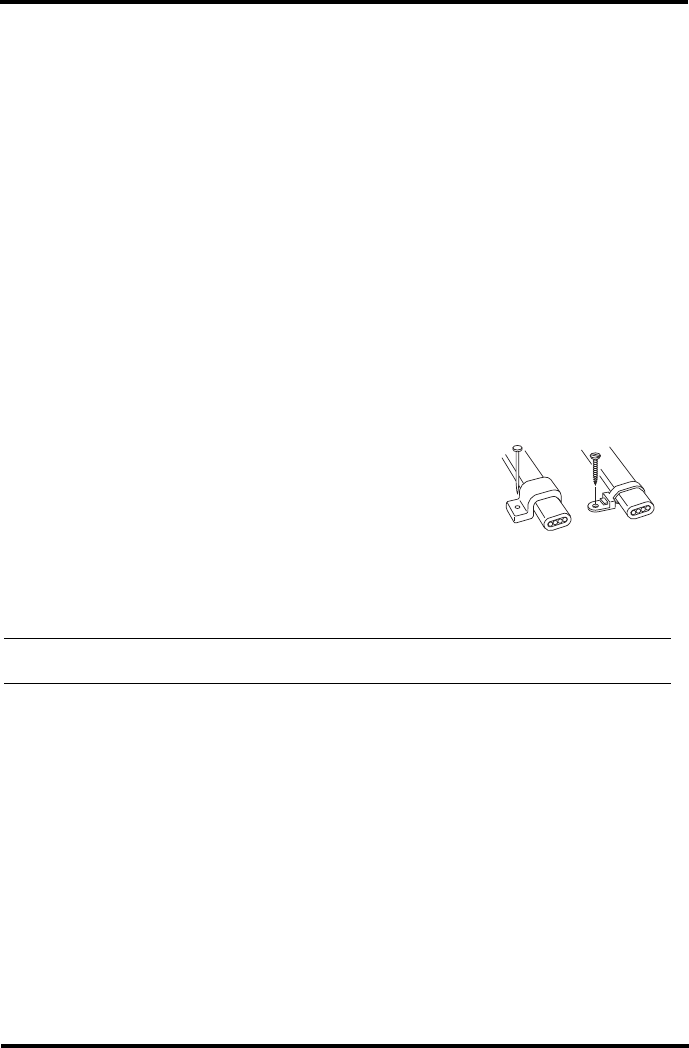
19
Installing the ISS
The anemometer and the main part of the ISS can be installed either together as a single
unit on a pole, or apart from each other. The main part of the ISS includes the rain
collector, the temperature and humidity sensors, the radiation shield, and the SIM
housing. Use the U-bolts to install the ISS and anemometer together or separately on a
pole. Use the lag screws to install them separately on a flat, vertical surface.
The anemometer comes with a 40' (12 m) cable for flexibility in configuring the system
to monitor wind conditions. For example, the anemometer could be mounted at the
highest point of a roof, and the ISS could be mounted on a fence closer to ground level.
General ISS Installation Guidelines
• Install the ISS as level as possible to ensure accurate rain measurements. Use a bub-
ble level or carpenter’s level to make sure the ISS is level.
• In the Northern Hemisphere, the solar panel should face south for maximum sun
exposure.
• In the Southern Hemisphere, the solar panel should face north for maximum sun
exposure. Either install the ISS and anemometer separately, each facing north, or
mount them as a single unit with solar panel facing north and the wind vane re-ori-
ented to the South. See “Appendix A: Re-orienting the Wind Vane” on page 28.
Optional: Guidelines for Securing Cables
• To prevent fraying or cutting of cables, secure them so
they will not whip about in the wind.
• Secure cable to a metal pole using cable ties or by wrap-
ping tape around both the cables and the pole.
• Place clips or ties approximately every 3' – 5' (1 – 1.6 m).
• Mounting clips, cable ties or additional hardware not included with your station can
be easily obtained at a hardware or electronics store.
Note: Do not use metal staples or a staple gun to secure cables. Metal staples — especially when
installed with a staple gun — have a tendency to cut the cables.
Orient the Wind Vane
The wind vane rotates 360° to display current and dominant wind directions on the
compass rose of the console display. To obtain accurate readings, the vane must be
correctly oriented when mounting the anemometer outside. By default, the wind vane
reports the correct wind direction if the anemometer arm points true north.
To ensure correct orientation of the wind vane, do one of the following:
1. Mount the anemometer so that the arm points true north.
The wind vane will be ready for use immediately.
2. If the anemometer is mounted so that it does not aim true north, remove the wind vane
and re-attach it aiming toward the preferred direction. Refer to the instructions in
“Appendix A: Re-orienting the Wind Vane” on page 28.
Cable Clip
Cable Tie
07395.249 Manual ISS Installation_RevE_Final_Print.pdf 21 4/7/2008 1:44:50 PM


















